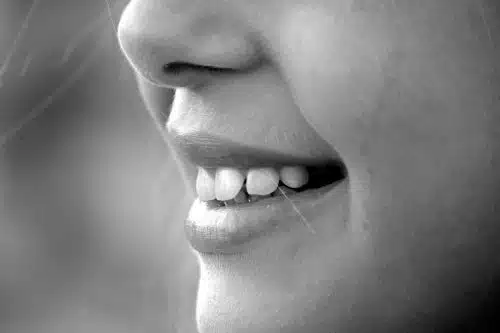Scientists from the Weizmann Institute discovered that people with autism react differently than others to body odors

Autism is usually characterized by an inability to read social cues. Sometimes it is customary to link this to the difficulty in interpreting facial expressions, but researchers from the Weizmann Institute discovered that the sense of smell may actually play a central role in the syndromes of the autistic spectrum. In a new study published in the scientific journal Nature Neuroscience, the researchers showed that people with autism show different - and even opposite - reactions to body odors. These are subconscious smells, which affect our moods and behavior, and are part of non-verbal communication. These findings may help in understanding early developmental defects that lead to the formation of autism.
Unlike many other mammals, in humans, the sense of smell is not the main sense. However, humans are constantly reacting to smells even without being aware of it. Prof. Noam Sobel's laboratory, from the Department of Neurobiology, investigates, among other things, smells that express feelings of joy, fear, or aggression towards others. Since these smells are used for social communication, the scientists wondered if the sense of smell might play a role in social disorders such as autism. To test this, Prof. Sobel and research students Yara Andwalt-Shapira and Ofer Pearl designed a series of experiments with the participation of volunteers defined as high-functioning autistics. First, the researchers tested the ability of the autistic and the non-autistic volunteers in the control group to consciously identify body odors, such as sweat. In this aspect, no significant differences were recorded between the groups.
In the next step, the groups were exposed to the "smell of fear" - sweat collected from participants in skydiving classes during the skydive, and to the control smell - sweat of the same people during training on safe ground. Significant differences were already discovered here: although the subjects in the two groups did not distinguish between the smells consciously, their physical reactions to each of the smells were different. In the control group, the "smell of fear" evoked significant fear reactions, which were reflected, for example, in the conductance of the subjects' skin. On the other hand, among the autistics, the "smell of fear" reduced the fear responses, while the smell of criticism increased the measured anxiety levels.
The researchers then examined social interactions, and found that here, too, the behavior of the autistics was the opposite of that of the participants in the control group: while the "smell of fear" increased the sense of trust among the autistics, the smell of criticism decreased the levels of trust they demonstrated.
In follow-up experiments, the researchers tested the effect of other "social" smells that are also absorbed into the subconscious. As part of one of the experiments, the volunteers were exposed to sudden noises, and at the same time they were also exposed to a body odor component called hexadecanal, which is attributed relaxing properties. Electrodes over the subjects' eye muscles monitored their fear response, which was expressed in increased blinking. And so, while in the control group the blinks decreased with the exposure to hexadecanal, in the autistic group the blinks actually increased.
The research shows that high-functioning autistics are able to read social cues based on smell, but their interpretation of these cues is incorrect. Prof. Sobel believes that this may indicate a deeper connection between the sense of smell and early development. Studies from recent years have discovered smell receptors, like those present in the nasal passages, also in different places in the body - from the brain to the womb - and it has been hypothesized that these receptors play a role in development. In other words, it is possible that the sensing of subtle chemical signals may go wrong at crucial stages in the brain development of autistic people. "We are still in the hypothesis stage," says Prof. Sobel, "but we hope that further studies, in our laboratory and elsewhere, will clarify the role of social cues based on smell, and their involvement in social disorders such as autism."
See more on the subject on the science website:

2 תגובות
Prof. Ditza Tzhor says that autistic people have no emotions. We have anxiety instead of fear.
This is the first article I've read here in years where just reading the title makes me think of "bullshit".
Is there anything less practical than this knowledge?
What is a father supposed to do with an autistic child, watch a horror movie while his son is throwing a tantrum in hopes that he will smell the sweat of fear and calm down?
Tell the people of Weizmann, can you hear yourselves??